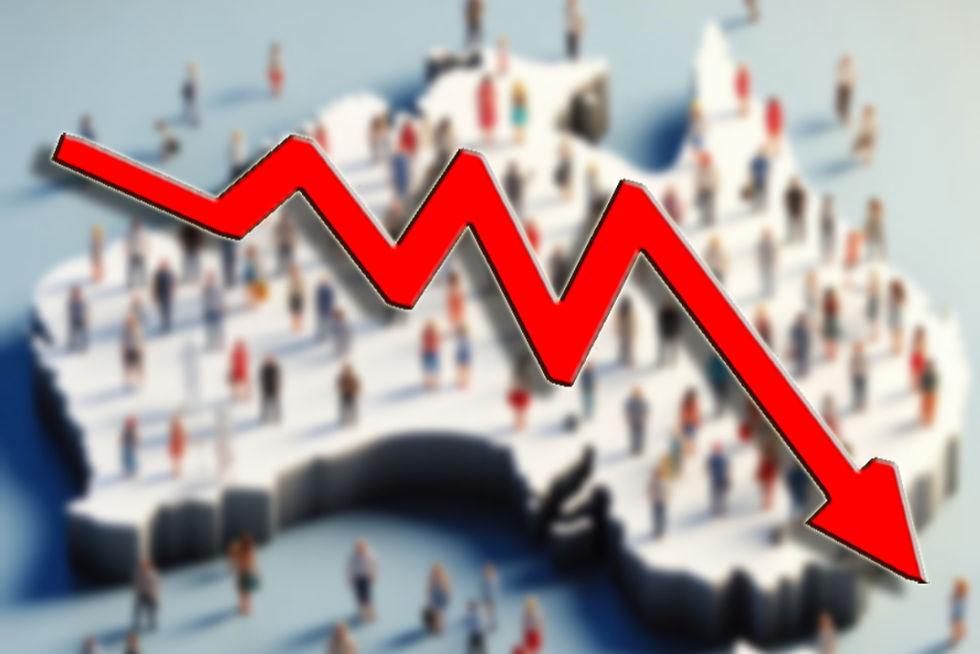Why PayPal TRUMPS Afterpay
- Insync Funds Management
- Sep 4, 2020
- 4 min read

Afterpay, Sezzle hit as PayPal unveils US push
by Luke Housego and Tom Richardson
A sell-off in Australia's high-flying buy now, pay later sector on Tuesday after payments giant PayPal unveiled plans to launch a competing product in the US has ended a record-breaking run of share price performance for the ASX-listed trailblazers.
PayPal revealed its 'Pay in 4' instalments offering to the New York Stock Exchange late on Monday night AEDT, sending shares in Afterpay down 8 per cent to $84.09, Zip Co 12.8 per cent to $7.99, and US-focused Sezzle 14.7 per cent to $8.76 in a buy now, pay later (BNPL) bloodbath.
Afterpay's meteoric rise into the ASX's top 20 means its fall on Tuesday was a key contributor to the broader market's 1.8 per cent decline. The stock is the second-biggest positive contributor by market value in 2020, reflecting Afterpay's increased grip on an index usually beholden to swings in the value of the miners, banks or CSL.
And since the start of the year, Afterpay has added 44 points to the S&P/ASX 200 Index, while the benchmark index has fallen 730 points over the same period.
PayPal said its BNPL service will help merchants grow online sales and customers. In line with other products in the market, it will allow users to pay for a purchase in four instalments over a six-week period, without being charged interest.
"The key competitive advantage for PayPal is the two-sided network. So that's 26 million merchants and 324 million users. That dwarfs Afterpay's two-sided network," Swell Asset Management chief investment officer Lachlan Hughes said.
PayPal has the existing technology to easily and quickly introduce the offering after large investment in its digital infrastructure over the past five years, according to Mr Hughes.

This is a very easy integration for PayPal to do for its merchants – it's a matter of flipping on a switch. Now, those merchants will have access to instalment payments, if the user wants to pay that way," he said.
Frazis Capital Partners founder and portfolio manager Michael Frazis said Afterpay's ability to grow market share will be determined by its ability to attract and retain both users and merchants.
"Afterpay will continue to lead the BN PL sector provided customers continue to use them at the checkout and they can demonstrate incremental value to retailers," he said.
Join the club
PayPal launched an instalment offering in France in June, according to Citi. And Afterpay's European acquisition target, Pagantis, is already working in partnership with PayPal to offer financing to PayPal merchants and consumers in Spain, according to the broker.
In another sign of relentless competition, US e-commerce giant and Canada's biggest company, Shopify, has also announced plans to launch a pay-in-four-instalments offering.
John Lobb, global equities portfolio manager at Insync Funds Management, said he was not surprised to see prices ease in the local buy, now pay later sector.

"PayPal already has access to all the Millennials and Gen Z which is the big target market for buy now, pay later," he said.
"You can imagine PayPal's got so much data on all its customers, so I'd say it can tailor its instalment loans. It understands the risks of all its customers. It's hooked up to their bank accounts already, because you must have one hooked up. So they can probably assess credit risks a lot better."
Proceed to checkout
PayPal's 'Pay in 4' product product will appear in a customer's PayPal wallet so they can activate it at an online checkout in an almost identical way to choosing Afterpay.
Mr Lobb said he viewed Afterpay as largely a customer acquisition mechanism for retailers to reach younger people, while PayPal is already highly profitable, but needs to introduce buy now, pay later as a defensive strategy.
"Retailers can just go, 'we don't even have to talk to Afterpay, we can just go let's offer this new product to the customers we have online via PayPal'.
"It's obviously a huge threat because if you're trying to expand globally and you're against a guy with 350 million customers and you've got 9 million, what it means is they can penetrate the market but they're going to have to cut their fees."
Mr Lobb thought the new competition could mean Afterpay is forced to discount the fees it charges retailers by up to half.
"So Afterpay will build their customer base, but they'll have to double it and double it again to offset the halving in the fees," he said.
The fund manager estimated based on his model that Afterpay would need to deliver 20 per cent compound earnings growth for the next 10 years to justify Tuesday's share price.
Disclaimer
Equity Trustees Limited (“EQT”) (ABN 46 004 031 298), AFSL 240975, is the Responsible Entity for the Insync Global Quality Fund and the Insync Global Capital Aware Fund. EQT is a subsidiary of EQT Holdings Limited (ABN 22 607 797 615), a publicly listed company on the Australian Securities Exchange (ASX: EQT). This information has been prepared by Insync Funds Management Pty Ltd (ABN 29 125 092 677, AFSL 322891) (“Insync”), to provide you with general information only. In preparing this information, we did not take into account the investment objectives, financial situation or particular needs of any particular person. It is not intended to take the place of professional advice and you should not take action on specific issues in reliance on this information. Neither Insync, EQT nor any of its related parties, their employees or directors, provide and warranty of accuracy or reliability in relation to such information or accepts any liability to any person who relies on it. Past performance should not be taken as an indicator of future performance. You should obtain a copy of the Product Disclosure Statement before making a decision about whether to invest in this product.




Comments